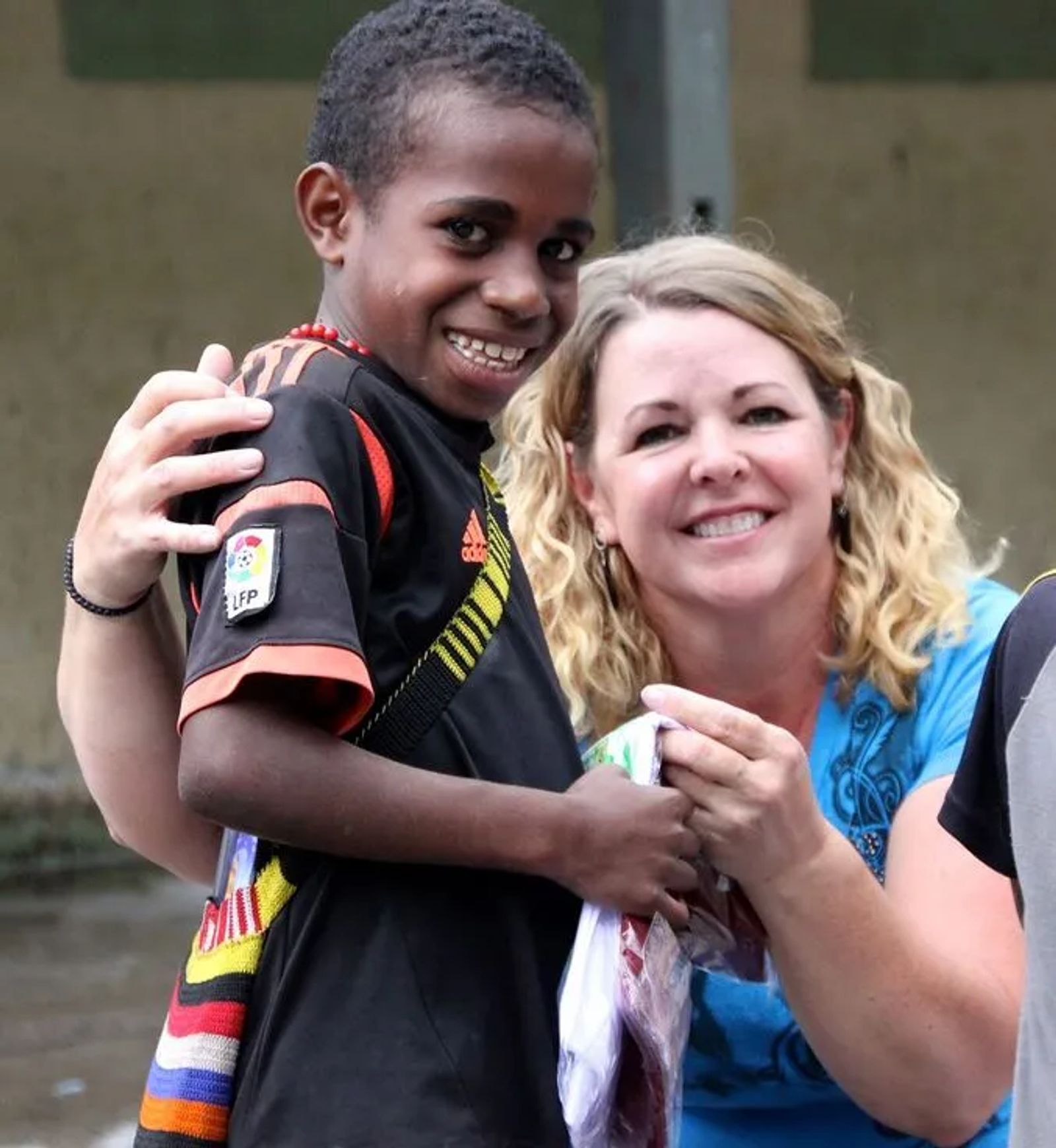
Cover Story: From Billings to Banti
Shari DeSaveur helps give the gift of an education
High above the tiny town of Tembagapura, Indonesia, Shari DeSaveur is worlds away from the life she had once known. More than 8,000 miles from her home in Absarokee, Shari and her husband Tony live in a two-bedroom apartment, 7,000 feet above sea level in the Jayawaijaya Mountains. Along the trails where she walks her dog "Tuff" (a wild one that she's since adopted), you'll find pristine views of the lush jungle down below.
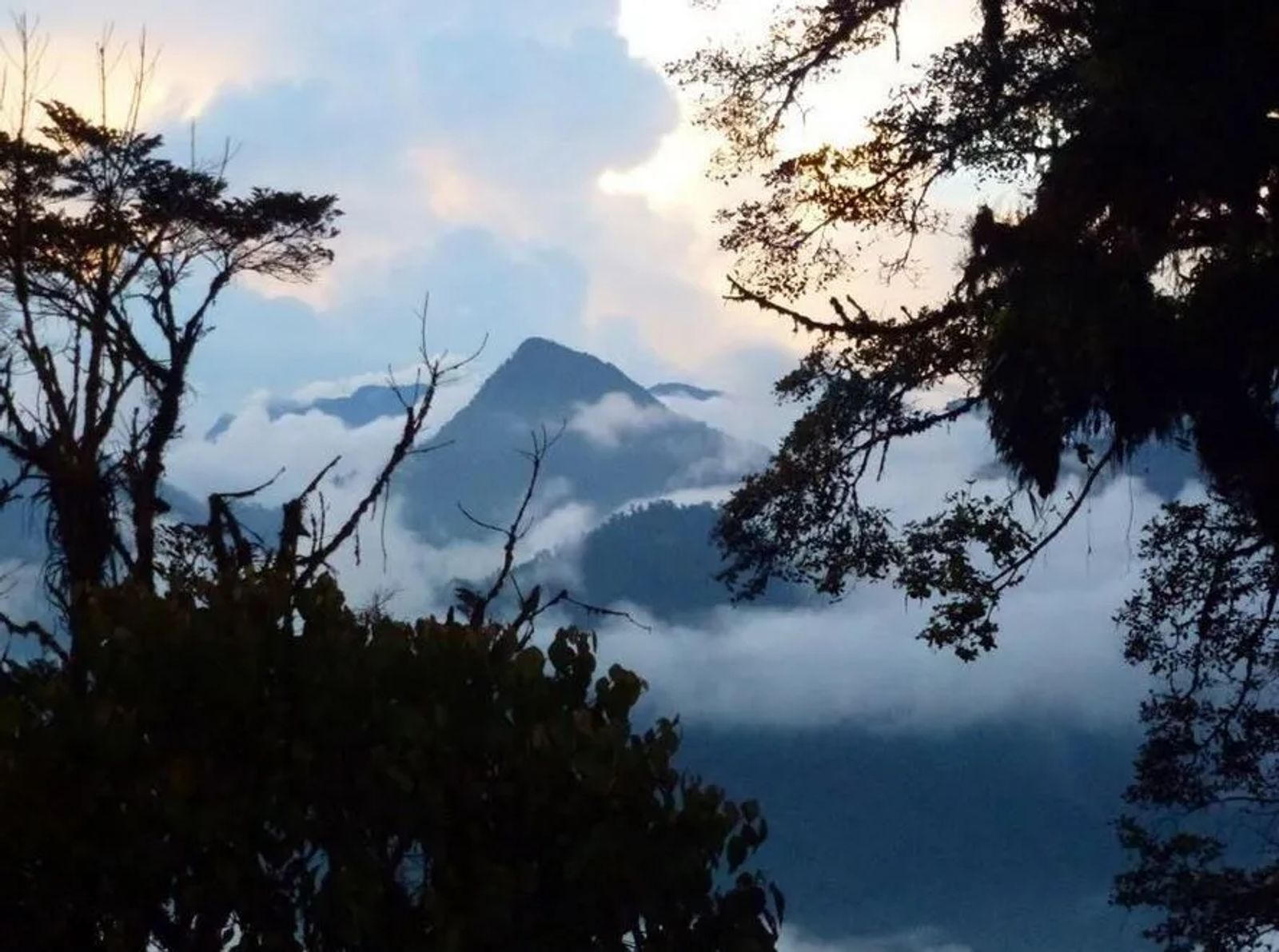
Five years ago, this life would have been unimaginable. Shari had never lived anywhere but in Stillwater and Carbon Counties. Her husband had spent more than two decades working at the Stillwater Mine when a job opportunity came along at the world's largest underground gold mine in Indonesia. Since then, Shari has been on an around the world adventure that has changed her thoughts on life, taken her out of her comfort zone and helped hundreds of native children along the way.
Before her husband Tony even said yes to the job, he and Shari went on an exploratory trip. She laughs when she thinks back on those first impressions. "It was interesting because on the way over there, we played this little game of percentages of how likely we were to do this. There were times when it was 50%. We fell in love with Bali. In Bali, it was 85 percent. We got to the airport and I am the only female and the only white female in this airport. There were probably 90 military guys and they were all packing machine guns. My husband looks at me and asks, 'What's your percentage now?' And I said 15 below!" She smiles and adds, "I thought he was crazy."
Eventually, Shari says, a peace came over her and before long, she was packing her bags. That was in June of 2011. She says, "Everything in your life happens for a reason and through this whole process I kept telling my husband, if God does not want us to do this he will throw roadblocks at me and I will know that we shouldn't be doing this. Everything fell so smoothly in place. It was like we are meant to be here. And I still don't know why."
If you ask Miko Sularso, one of Shari's Indonesian friends who works as the Communications Officer at the mining company, Freeport McMoRan, it's clear why Shari was called to this little part of the world. "Students are exuberantly going back to school," he says. "The highland education mission is now rolling again." Children, who had little hope for an education, are now making their way into the classroom for the first time in their lives. Miko credits Shari.
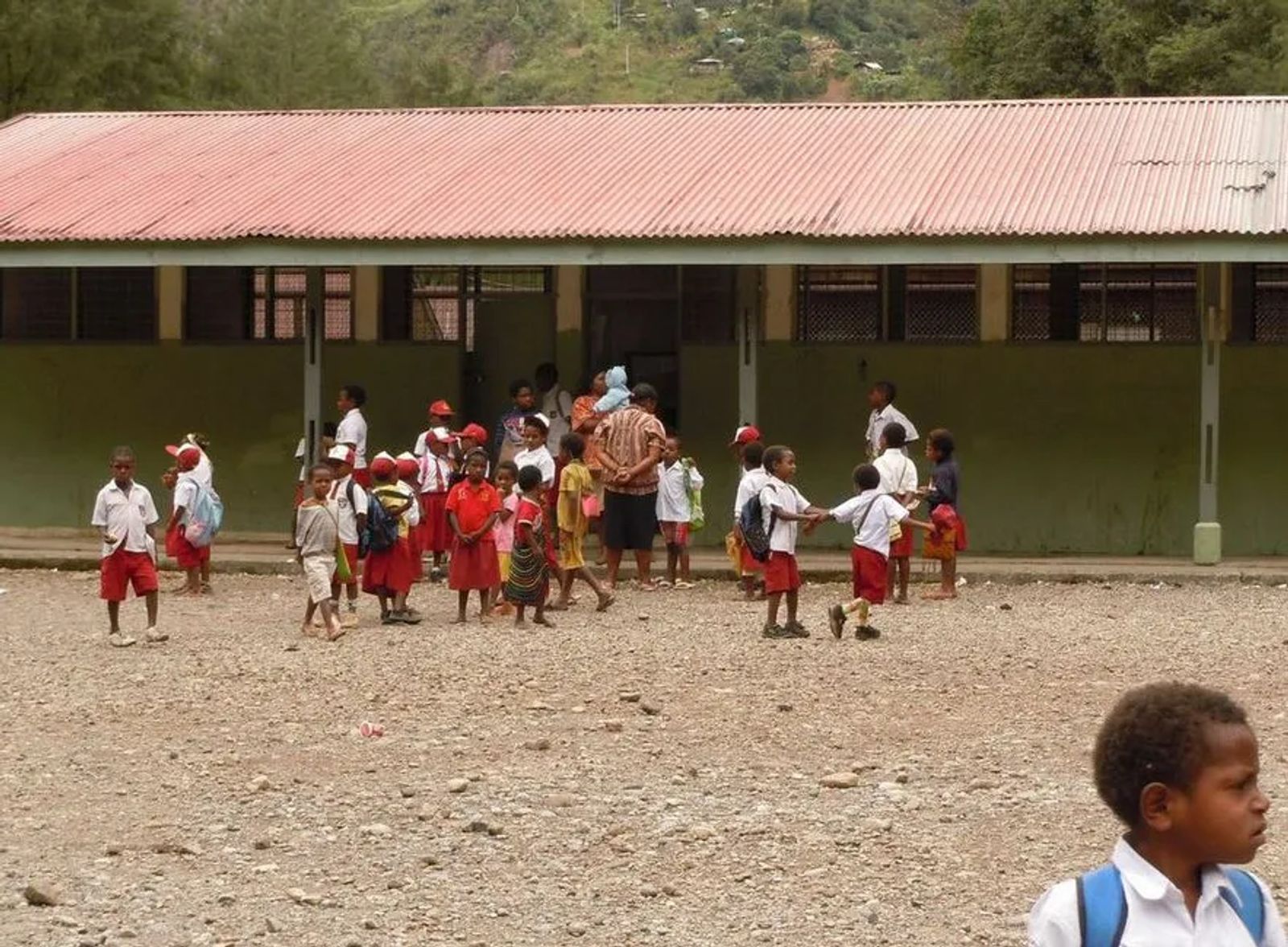
It was curiosity that first moved Shari out of her comfort zone. Her ears perked up one day when a friend, Dionne Gobey, whose husband works for International S.O.S., started to talk about the children in the village below called Banti. "She was just horrified by all the trash and uncleanliness. I was intrigued by it." So, when the chance came for Shari to join Dionne and her husband Phill on a trip down to the village hospital and spend some time playing with the children, Shari says, "I thought, 'Yes, I can do this!' My husband was not very thrilled with the thought of me going somewhere where he had never been, and going down and exposing myself to who knows what."
Tony DeSaveur had a right to be concerned. This "neck of the woods" has a politically unstable past. The country is pretty much split down the middle and Shari explains, "Half of it is Papua New Guinea and half of it is West Papua, which is controlled by the Indonesian government." Papua New Guinea is unstructured and is made up of tribal communities of aboriginal descent who long to control the entire island. Shari says, "They would love to have control because the money obviously comes from the mine. If you control the mine, you are going to have wealth for your people. However, they are armed with bows, arrows and spears still. The Indonesian military has machine guns."

Since 2002, there have been dozens of violent ambushes led by armed rebels coming over the mountain that divides the two parts of the country. The revolutionary group known as the Free Papua Movement has been blamed for dozens of deadly attacks near the Grasberg Mine. Just months before Shari arrived, two mine employees were killed when their company car was hit by gunfire. They were on the very road Shari uses when she heads down to the lowlands for supplies that can't be purchased at the local store. Shari says, "They would shoot at the convoys going up the mountain." In the past decade, 16 people have died in the violence. Today, the mine has bullet proof buses and drivers are outfitted with bulletproof vests and helmets. "There hasn't been an incident in probably a year or a year and a half now. But, yes, people were shot and killed on that road by insurgents that happened to get a hold of some machine guns."
Putting all worries aside, Shari joined Phill and Dionne and made her way down to the village every Wednesday to play with the children at the hospital. "Then, I started to want to see more of the village. Each time, we would get a little more brave and go a little farther. The school happened to be right next to the hospital. When we would get there, the kids would see us and they would run to us because they figured out that we were there to play. I kept asking, 'Why aren't these kids in school?'"
Shari came to learn that it was a uniform that held these kids back. In Indonesia, a child can't get an education if they don't follow the dress code. Shari says. "I discovered that many of the families only had one school uniform and several children. So, one child might attend school one day, another the next, sharing the same uniform. What kind of an education are they going to be able to get?" She adds, "It has become my mission while I am here to provide the means to overcome that obstacle in these children's lives."
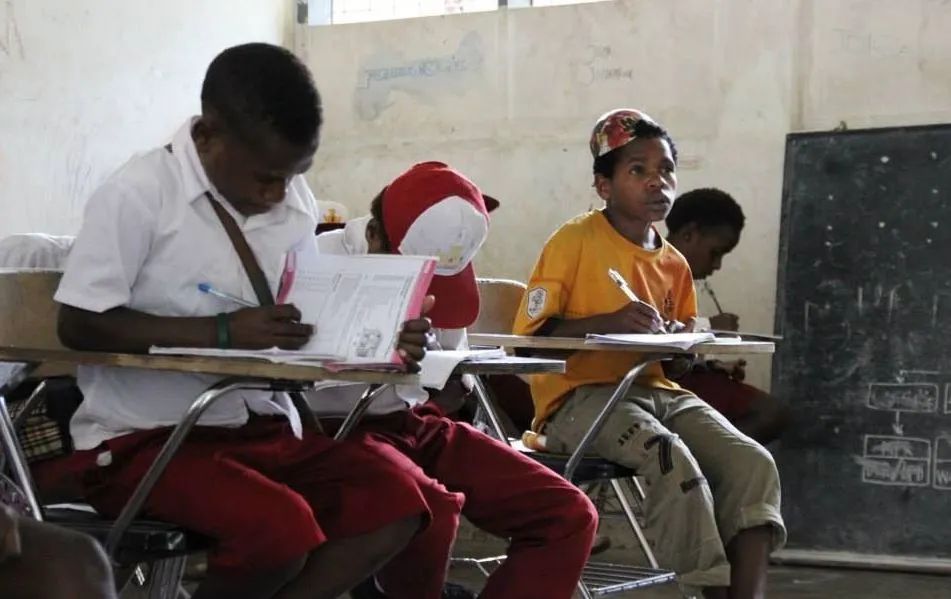
In fall of 2012, Shari gathered some friends and started to run the numbers on how much it would take to supply one child with a new uniform. It boiled down to $12 for the regulation shorts and shirt —a little more than ten dollars to give a child an educational opportunity. These are children who, Shari says, have little to nothing to their names. "They live in huts with no plumbing or electricity. It is a very stark contrast to what we know in the United States. There are pigs and dogs running wild in the streets."
During the process, Shari knew she had to cross every "t" and dot every "i." She says, "I made sure I had an appointment with the government office to make sure that they would allow me to hand out the uniforms." She came to see, over the course of a year, that it was far easier to gather the clothing than it was to get it to the children in need thanks to government red tape and changing administrations. The Pak Camat, the person we might consider a Mayor or community leader, turned over three times during this process. While the donations started to roll in during 2012, it wasn't until April of 2014 that Shari was able to deliver 126 donated uniforms. At the time, she thought, "If I can help only one child receive an education, it will totally be worth the time it took me to accomplish this!"
After getting the green light to deliver the clothing, Shari knew she wanted to be the one to hand these children the key to their education. "Things can be very corrupt over there," Shari admits. "I didn't feel comfortable taking somebody's money and then not knowing exactly where it went. My fear was that if I just handed over the uniforms to the school officials, I would see them in the stores. I have no doubt that would have happened."
But Shari's quest didn't stop with some shirts and shorts. She went on to help supply the classrooms at the Banti school as well. Shari says, "The next chapter of the story is I have a cousin in Arizona who used to be an elementary school teacher. She said to me, 'Now that you have more uniforms, you are going to have more kids and you're going to need more supplies. What do the kids have for supplies?'" Before she knew it, boxes from the United States were being packed with notebooks, rulers, pencils and pretty much anything else that a child might need in order to learn.
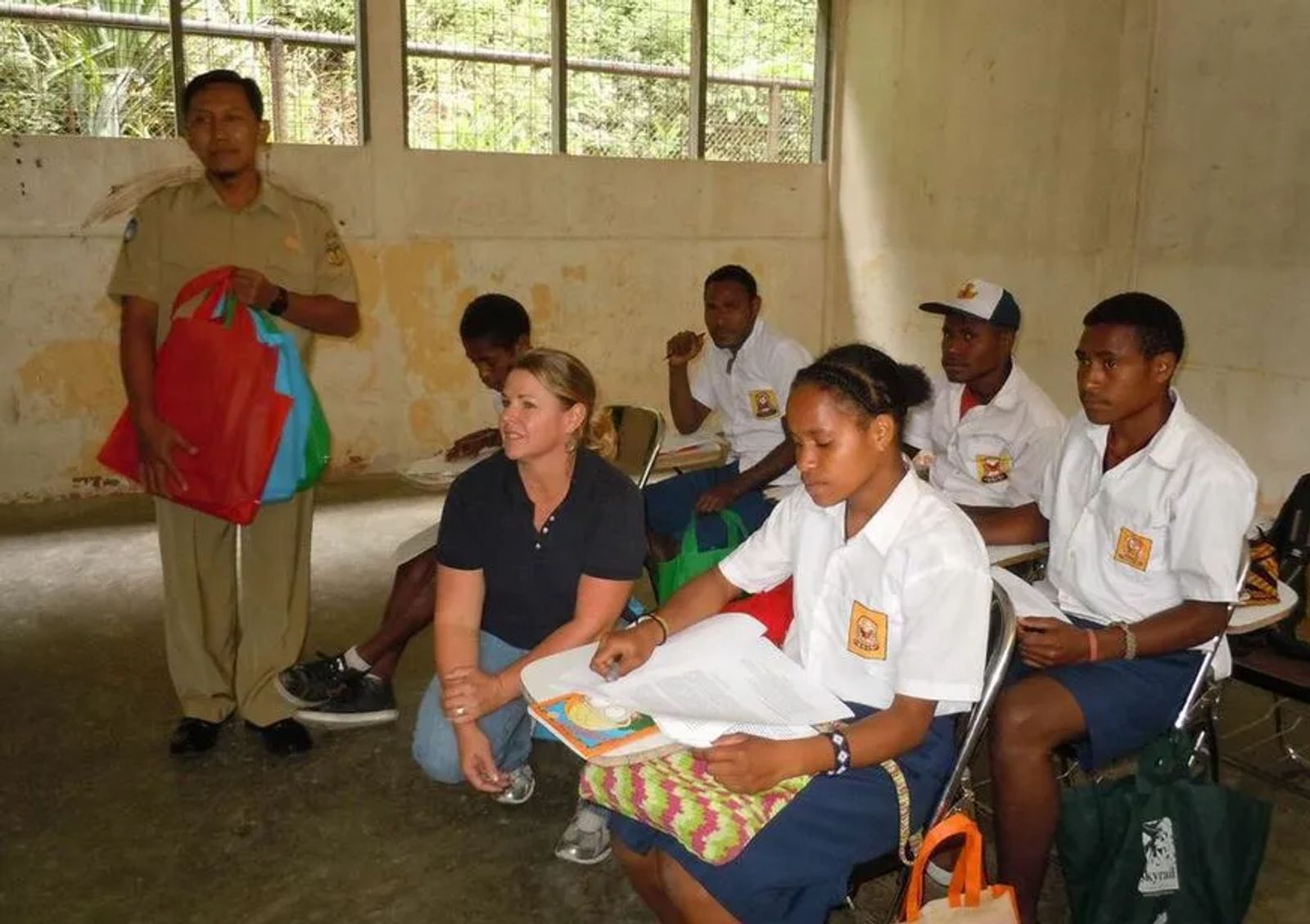
Facing a huge freight bill to ship the package overseas, Shari turned to her husband's company, Freeport McMoRan to see if they could help. What happened next is just one more step in this community's educational rebirth. "That was enough to trigger somebody at headquarters to say, oh my gosh, look at the school," Shari says. Truth be told, it was in shambles. "They weren't even using the top floor of the school because it wasn't safe to be up there. They were only using 4 out of 20 classrooms because they were in such bad shape." Shari left for a trip back to the U.S. in May. When she returned later that summer, "They had totally refurbished the school. They now had somebody poking around down there saying what can we help with?" Not only were classrooms renovated and made safe, teachers were once again on site in one of the seven brand new residences.
To say Shari was amazed would be an understatement. The school was even more so. Shari says, "The school's head Master through an interpreter told me, 'Just you coming every once in awhile and checking in makes not just the government but makes the company and makes everybody realize that this is a project that needs to be worked on. It can't just be shoved under the rug.'"
Hearing those words and knowing her time here is coming to a close is a little bittersweet. After all, Shari has made some pint-sized friends here who will be terribly hard to leave behind. Almost every day after school, four ten-year-old girls will pound on Shari's door hoping for a visit. While they started coming to play with her dog, they kept coming because of her friendship. "They actually threw me a birthday party and brought me presents. They gave me some beautiful fabric which I am actually having made into a formal Indonesian dress."
While she'll miss these sweet little faces, there are a few things she won't miss. She won't miss not being able to drive or bank without her husband's assistance. "Women's rights are a little bit different here," Shari says with a laugh. She won't miss the dial-up Internet or the squat pots that serve as toilets. She won't miss the bus rides just to get a gallon of milk. She won't miss the machine gun fire that brought her out of a dead sleep during the middle of the night.
"It has actually been a pretty good learning experience for me," says this one-time high paced media executive. "This has made me see that the little things just aren't as important as they used to be. You know what? It's not the end of the world. There are bigger things," Shari says about the mental shift she's undergone. She now knows how to live the infamous Indonesian words, "Tidak Masalah," which means "No worries."
Before Shari even stepped onto Indonesian soil, her daughter-in-law gave her some sage advice. Shari says, "My son is in the Navy and so they have moved around a lot. My daughter-in-law said, 'It is what you make of it Shari. You can have a great time and a great experience or you can be miserable and hate every minute of it. It is up to you. It is what you make of it.'" Shari took those words to heart.
As she gets ready to close this chapter of her life and head back home after four years abroad, she's ready. She and Tony will pack up and head back to Absarokee sometime before August of this year. On one hand she misses her six grandchildren. On the other, she hopes and prays that the mission to educate the children of Banti continues.
"Maybe there is one of those children that is going to be such a positive influence on the world and that is the whole reason why we went. I don't know." She adds, "It really is all about their smiles and the thought that maybe you have, even a little bit, made someone's life easier."














